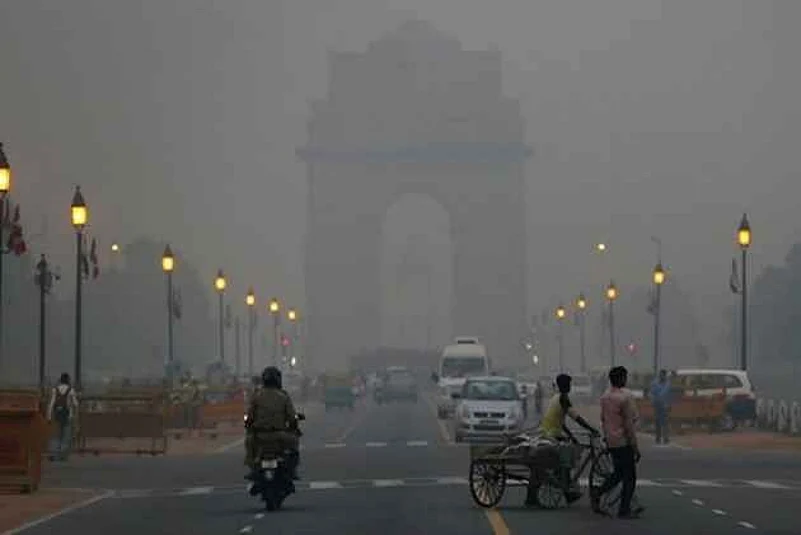Delhi's air quality remained in the emergency category for the second straight day till Monday. However, monitoring agencies have forecast a gradual clean-up from Tuesday.
Both the Central Pollution Control Board (CPCB) and SAFAR predicted that air quality will start improving today and may turn 'very poor', which is a notch better than 'severe'.
The CPCB's air quality index for the city was 460, same as yesterday. The hourly-graph of the Central Control Room for Air Quality Management had a downward slope, reflecting the improvement.
The levels of ultrafine particulates PM10 and PM10 were 543 and 367 micrograms per cubic metre at 7 pm, after steadily dropping through the day.
The corresponding 24-hour safe standards are 60 and 100.
Air quality will be out of the emergency category, as per the Centre-notified Graded Response Action Plan (GRAP) once these levels fall below 500 and 300 respectively.
"The recovery to very poor is now expected only by the afternoon of November 14. It was otherwise expected on Sunday. However, a steady declining trend in AQI started from the evening of November 12," SAFAR (System of Air Quality and Weather Forecasting And Research) said in its analysis.
The impact of smoke from stubble burning in Punjab and Haryana has come down substantially, both the agencies said, explaining that the wind direction has changed to southeast (through western Uttar Pradesh).
"Very light rain/drizzle is likely to occur on November 15. Under the above scenario, atmospheric circulation over Delhi will become favourable for reduction of air pollutants from this evening," the CPCB said.
A 'very poor' AQI comes with the warning that people may develop respiratory illness on prolonged exposure while exposure to 'severe' air affects healthy people and seriously impacts those with existing respiratory or cardiovascular diseases.
Delhi Pollution Level 'Severe', Air Quality To Improve From Today, Says CPCB
The CPCB's air quality index for the city was 460 till Monday
Advertisement

Delhi Pollution Level 'Severe', Air Quality To Improve From Today, Says CPCB
Delhi Pollution Level 'Severe', Air Quality To Improve From Today, Says CPCB


















